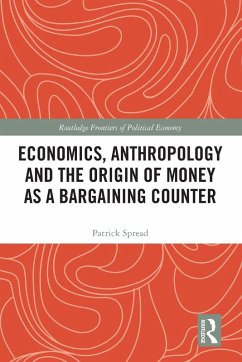
The Routledge Handbook of Cooperative Economics and Management
Versandkostenfrei!
Versandfertig in 1-2 Wochen
263,99 €
inkl. MwSt.
Weitere Ausgaben:

PAYBACK Punkte
132 °P sammeln!
This handbook highlights the essential issues and debates of cooperatives and provides a future research agenda, outlining the distinctions and similarities between individual and (inter)organizational cooperation, and explores the connections of cooperative economics and management to fundamental ethical principles.














